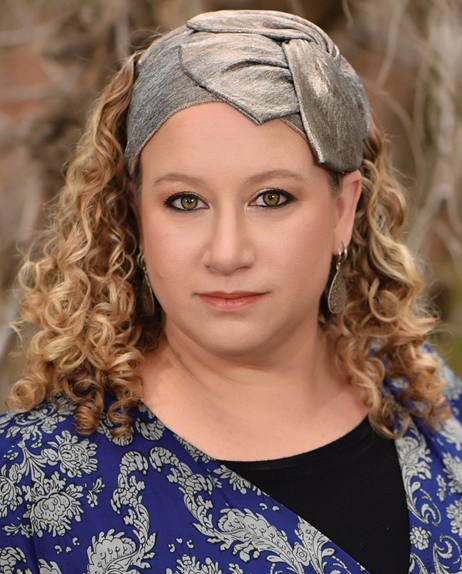 Writing Jewish based fantasy novels is Rena Rossner’s passion. She is coming to Kansas Sunday, Oct. 21, to be part of the “Writing Jewish: Midrash, Myth, & Miracle” writing workshop put on by the KU Jewish Studies Program in Lawrence, and she plans to share her passion there in a workshop entitled, “Don’t Ask Questions about Fairy Tales: Jewish Myths and Legends Re-Imagined.”
Writing Jewish based fantasy novels is Rena Rossner’s passion. She is coming to Kansas Sunday, Oct. 21, to be part of the “Writing Jewish: Midrash, Myth, & Miracle” writing workshop put on by the KU Jewish Studies Program in Lawrence, and she plans to share her passion there in a workshop entitled, “Don’t Ask Questions about Fairy Tales: Jewish Myths and Legends Re-Imagined.”
Rossner, who lives in Jerusalem with her husband, Jonathan, and her five children, was delighted to be invited to present at the program.
“Writing Jewish fantasy and bringing more Jewish fantasy to the world is a huge passion of mine,” she said. “I’m very excited to be able to speak about it at the symposium.”
A graduate of John Hopkins University with a double major in history from the school’s Writing Seminar’s program, Rossner studied under Chaim Potok.
“He was a huge influence and inspiration to me,” she said.
She continued her education at McGill University in Montreal where she earned a master’s degree in history. Her two degrees merge together in her writings. Her first novel, “The Sisters of the Winter Wind,” came out on Sept. 25. Focusing on the shtetl of Dubosarry, where her family was from on the border of Moldova and the Ukraine, it tells the story of young women who uses a budding knowledge of magic to save their village.
“The intersection of history, magic, myth and folklore is something that fascinates me,” Rossner said. “I think there is a treasure trove of untold stories with elements of magic and myth in Jewish literature, and that so many aspects of our shared history — the stories we tell and retell — have a fairytale like quality to them.”
Rossner thinks it is important for Jewish writers to tap into the mysteries, magic and folklores that are immerse in Jewish history.
“There is myth, magic and prophecy sprinkled throughout our history as a people, and yet, we see so little of it reflected in literature,” Rossner said. “I see myself as ‘leading the charge’ to encourage other writers to explore these elements of our history and heritage and to bring them to life. I plan to talk about these lesser-known elements of our Jewish heritage and how as writers we can use them as jumping off points for the creation of unique and inspiring works of Jewish fantasy literature.”
Rossner worked in journalism when she first moved to Israel. She wrote a weekly column for the Jerusalem Post called “The Weekly Portion,” which had recipes based on the weekly parsha. Her columns led to the November 2013 publication of a book called “Eating the Bible.”
After the birth of her fifth child, Rossner wanted to change direction and work with other authors as a literary agent. She applied for a job at the Deborah Harris Agency working in the field of foreign rights. The Deborah Harris Agency represents over 300 other agencies and publishers worldwide to translate their work into Hebrew. Rossner’s emphasis changed over the years.
“Eventually I started to build my list at night, on my own time,” she said. “Now I work full time representing a diverse list of picture books, middle grade, young adult and adult literature, and I love my job more than anything.”
A native of Miami, Rossner’s trip to Kansas is part of a month-long stay in the United States, which includes going to Baltimore for the World Fantasy Con and to her original home in Miami for the Miami Book Fair. Although she will be speaking about her own work at her many stops, Rossner said she is always looking for talent.
“I am especially interested in bringing more Jewish fantasy and science fiction to the world,” she said. “It is also really important to me to represent more marginalized voices — from within the Jewish tradition and just in general.”
Rossner has a vision for Jewish literature that is not as much Holocaust centered.
“There’s a lot of talk in publishing and I think in the Jewish world in general that we need more Jewish stories that aren’t about the Holocaust — and certainly more tales of Jewish resistance,” she said.
It is important to her that other voices are heard.
“My heroines are also female, and identity as Orthodox Jews,” she said. “It was important to me to amplify their voices and to give my characters agency. As an Orthodox teen, I never got to see girls like me as heroines of their own fairy tales and fantasy novels, and I want to reclaim Orthodox female narratives in this way and to bring back the voices of so many who have been silenced by history and circumstance. More than anything, I want to encourage other writers to do the same.”


